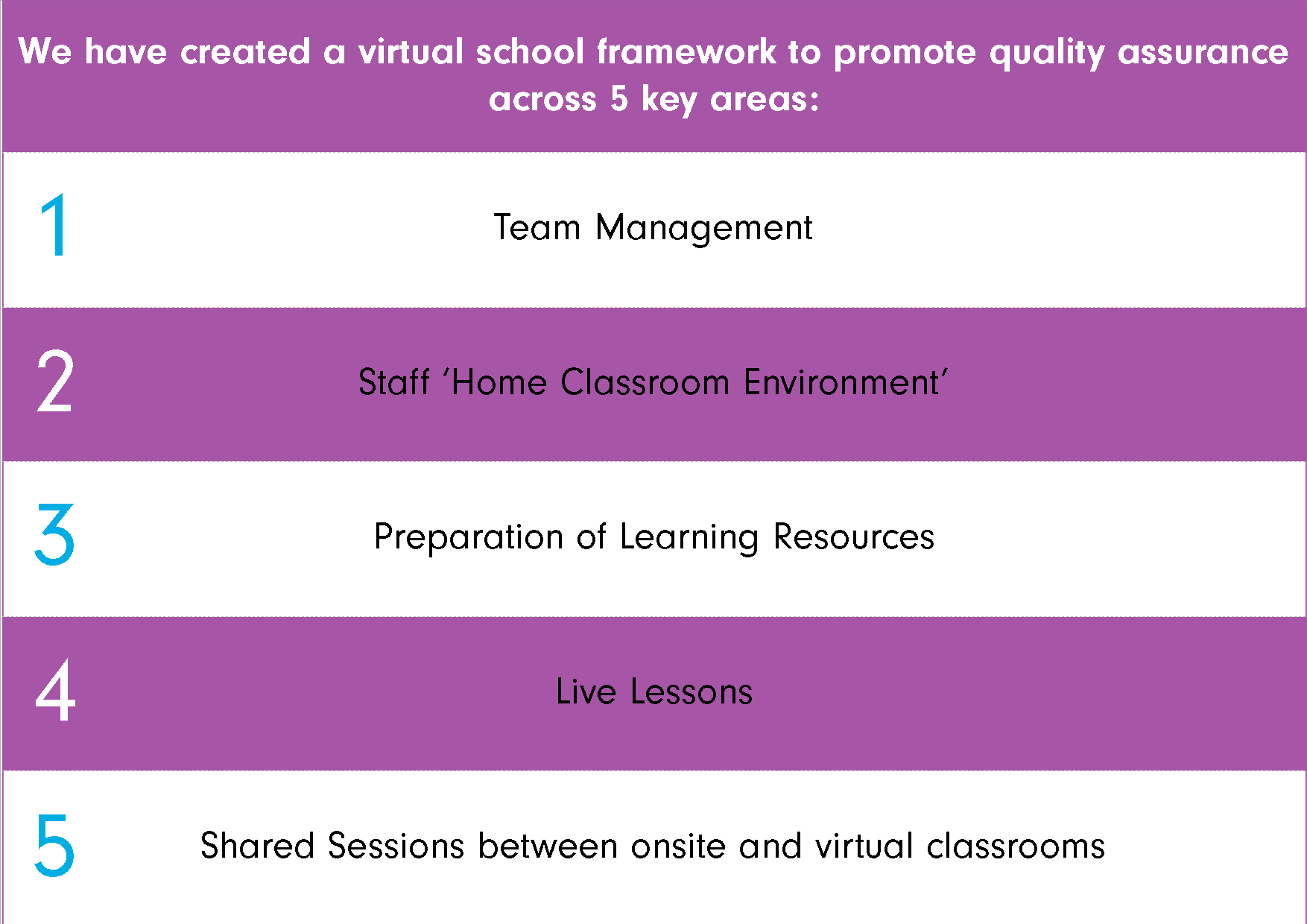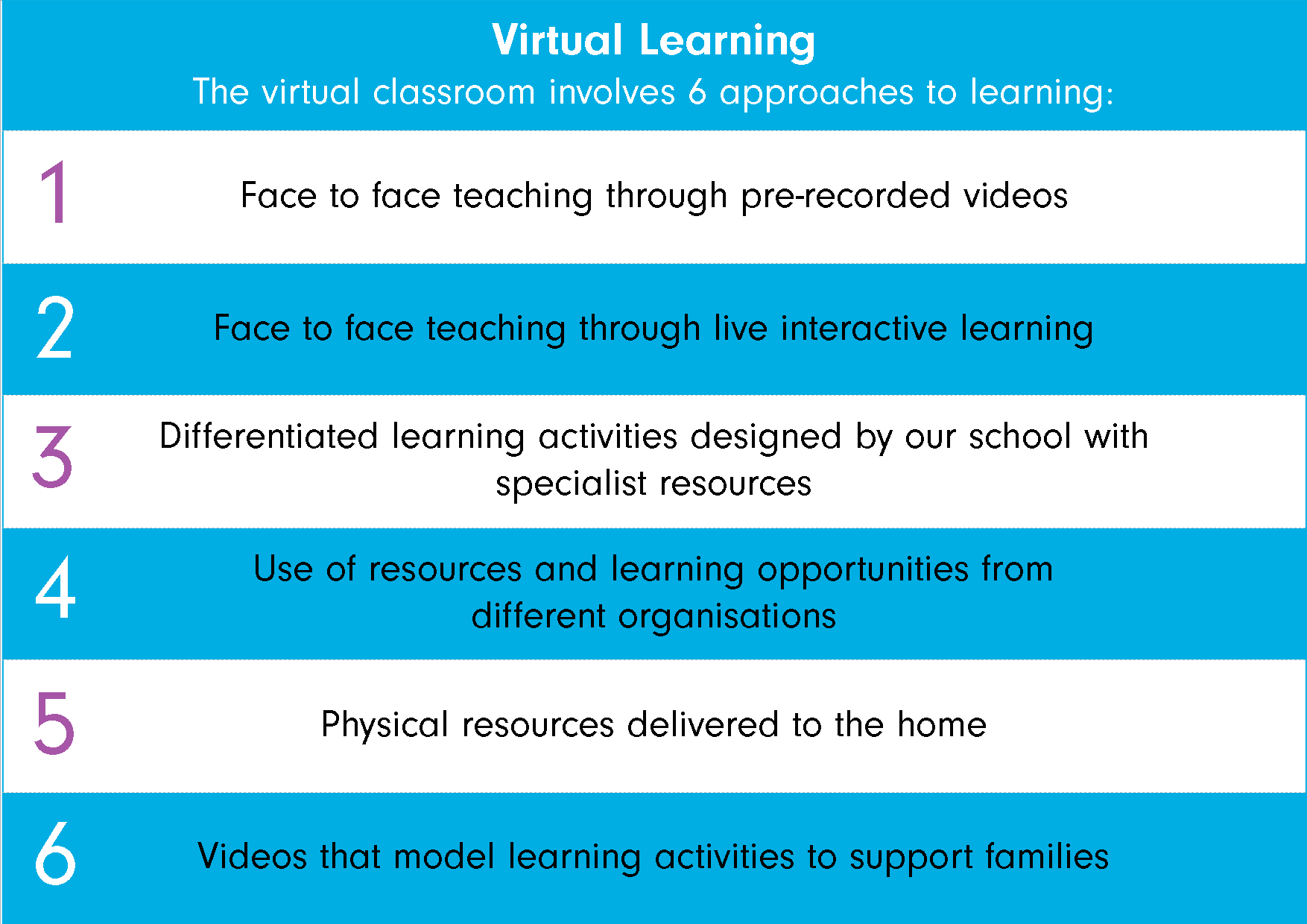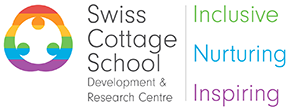This was the school’s model during the pandemic response for Virtual Remote Learning.
The Transition ‘Recovery’ Curriculum
Our Transition ‘Recovery’ Curriculum used 7 themes to support your child’s wellbeing as they returned to the school building, classroom routines, engaged in full day learning, and interacted with the pupils and staff in their class. The themes of the Recovery Curriculum are:
.png)
We put a number of measures into place to make the school building, classroom environments, and our daily approaches safe and secure. Our school safety measures are able to be viewed here.
Swiss Cottage School, DRC developed our Virtual School offer in March 2020 during the 1st pandemic lockdown. Our experiences of supporting pupils with complex medical needs that experienced absences from school due to hospital admissions informed the Virtual School design.
We worked with families to understand what worked well and what could work better to review the Virtual School from the Summer Term. This informed our planning for any classes that may experience the 2 week self-isolation period in the Autumn Term.
A two week timetable for every class linked to the curriculum pathway, classroom vision for learning, and EHCP priorities. Resources were prepared in advance so that any positive case response has an immediate support for families to avoid loss of learning. All staff were trained on the home learning technology in April 2020 and this was renewed in September 2020. This allowed for continued learning as the school responded to 32 positive COVID-19 cases in our school community.
The January 2021 lockdown informed a survey to all parents on their preference for onsite or virtual school provision. This also included a survey of staff on their preference of working onsite or within the virtual school. The school created hybrid class groups to support 118 parents seeking onsite provision and 142 parents seeking virtual school provision to shield with the COVID-19 variant.
The school continues to use elements of the Virtual School model for individual pupils through our Multi-Agency coordinated intervention if long term absence is anticipated.
Swiss Cottage School also produced learning modules for the Department for Education's 'Virtual School' known as the Oaks National Academy.
Virtual School
Our virtual school was guided by the school’s 5 curriculum pathways:
https://swisscottage.camden.sch.uk/learning/curriculum/
The virtual teaching medium-term and short-term planning was guided by our school’s planning process:
https://swisscottage.camden.sch.uk/learning/teaching-learning/
The virtual teaching was assessed in partnership with families. This was through reflective questions provided by the class teacher to the family that linked to our school’s formative assessment process:
https://swisscottage.camden.sch.uk/learning/assessment-progress/

The school coordinated multi-agency provision (NHS therapists, CAMHS specialists) to ensure the virtual class timetable was connected. Families were involved in defining this timetable to promote their balance with home circumstances.
Monitoring Engagement and Welfare
A daily register was taken in the Virtual School for all pupils. The school had a cycle for monitoring engagement and a cycle for monitoring welfare of pupils. These are linked to the school’s normal processes:
Engagement: Weekly review cycle from the class teacher to identify successes and highlighted any measures we could put into place to promote further engagement. This involved the following areas:
-
Delivery of resources and technology
-
Broadband dongles and SIM cards for families using mobile data
-
Therapy resources
-
Modelling or examples of teaching approaches
Use of the school’s system from home (MyConcern and Communication Logs)
Welfare: Weekly monitoring meeting focused on Virtual School cohort as a discrete group
Referrals from the weekly monitoring meeting scheduled doorstep visits with families and/or planning meetings with multi-agency teams including NHS therapists, CAMHS specialists, and Social Care to put into place early intervention.
The Family Inclusion Team supported families directly with wellbeing priorities.
Quality Assurance
The school day promoted teacher workload balance.
Teachers continued to have the morning 8:30-9:15 time for a meeting on Microsoft Team to outline planning and preparation with the class team for the online learning focus of the day. This included opportunities for training and research linked to the long term vision for the class.
Clusters of teachers within the professional learning communities (NESTs) engaged in enquiry based reflective practice to develop approaches for delivering quality virtual learning and shared best practice between professionals.



















